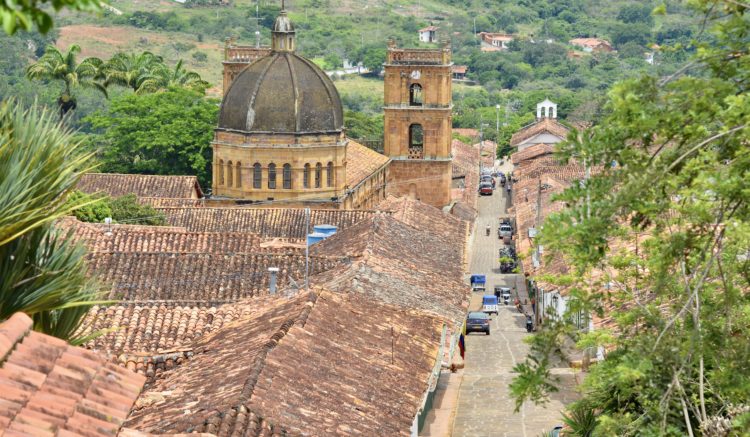Travelling North from Bogotá the temperatures climb as you move to lower altitudes into the fertile and economically productive provinces of Boyacá and Santander. Once you have escaped the notorious Bogotá traffic, the route North follows the valley between the cordilleras of the Northern Andes and the landscape is universally green interspersed with many trees.
Back in the years immediately post independence from Spain, many settlers arrived from Britain and Germany, and while those populations have long since been absorbed, there is evidence of their influence through a number of breweries and farms, particularly the large amount of cattle that is reared here.
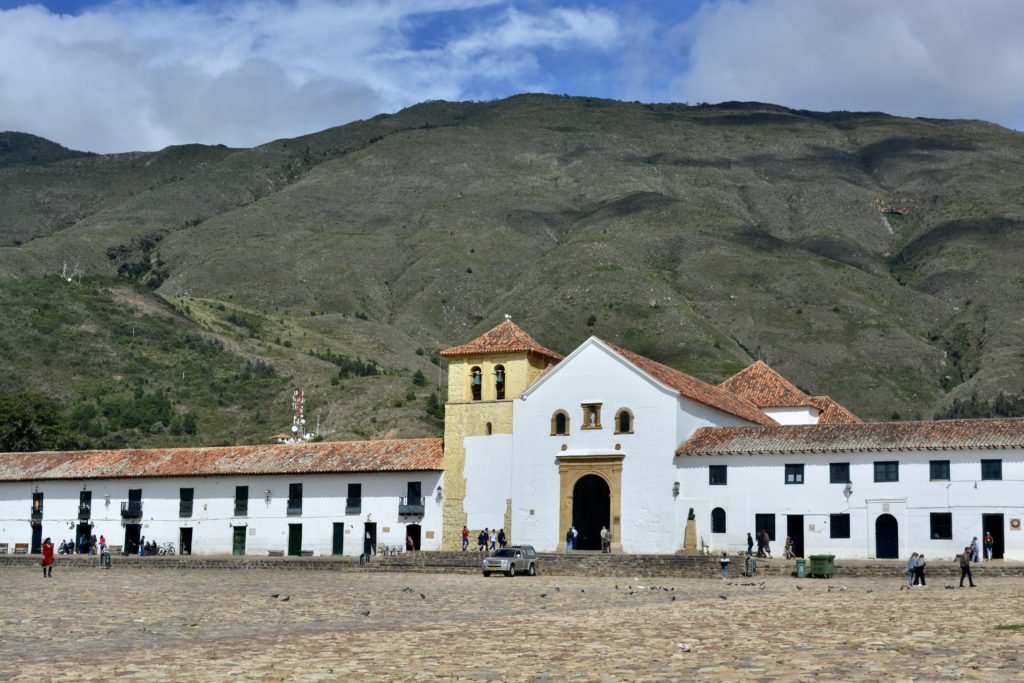
The first town we visited was Villa de Leyva some four hours North of Bogotá. Villa de Leyva is a well preserved colonial town with one of the largest Plaza Mayor in all of Latin America. The square is all cobbled stoned with perfectly preserved buildings along all four sides. In the centre sits an old well which in the past provided the town with all its water.
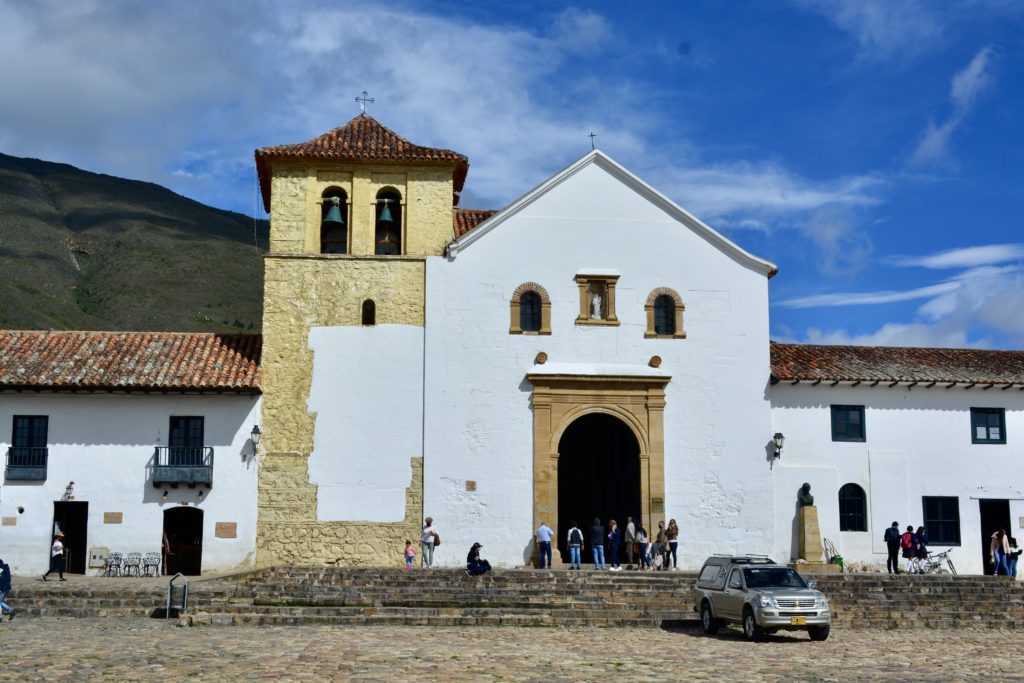
Dominating one side of the square is the 17th Century Our Lady of the Rosary Church, which was very busy with both weddings and funerals on the Saturday. Inside the church is, unlike many Colombian churches, very plain in its decor. Additionally there were a number of photo shoots for weddings and more general Instagram photos in the square all day.
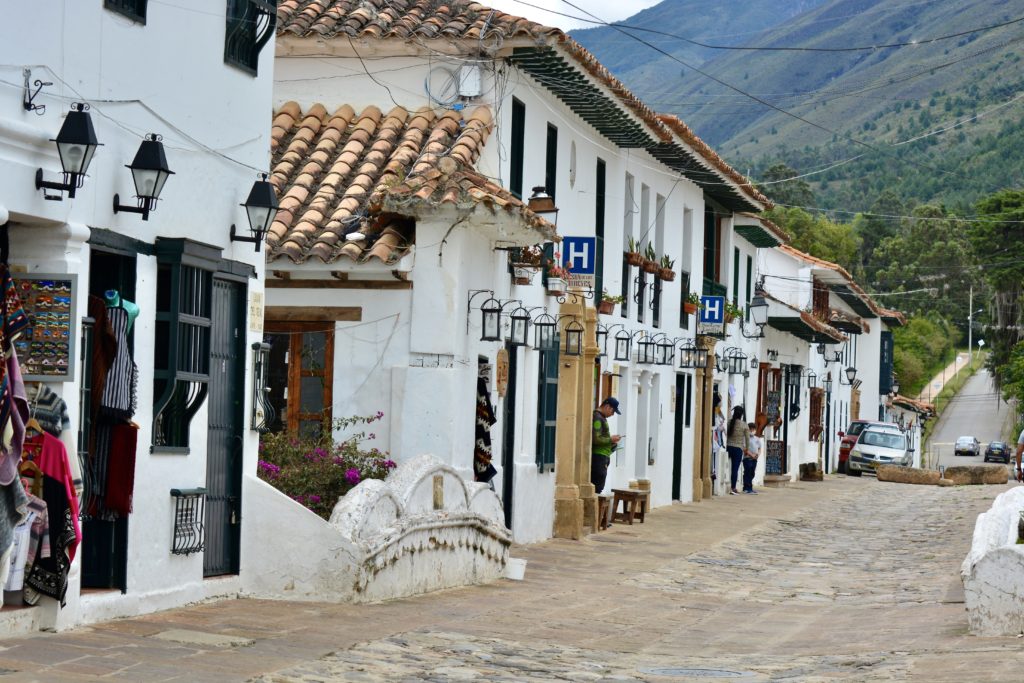
Villa de Leyva is very popular with day trippers or weekenders from Bogotá, and the town does fill up at weekends. However, unlike four years ago the town was not crowded, and has suffered like most from the pandemic. The hotel we stayed in last time was closed but we were able to find a lovely hacienda type hotel, Hotel Andres Venero, on the edge of tow with beautiful gardens, balconies etc.
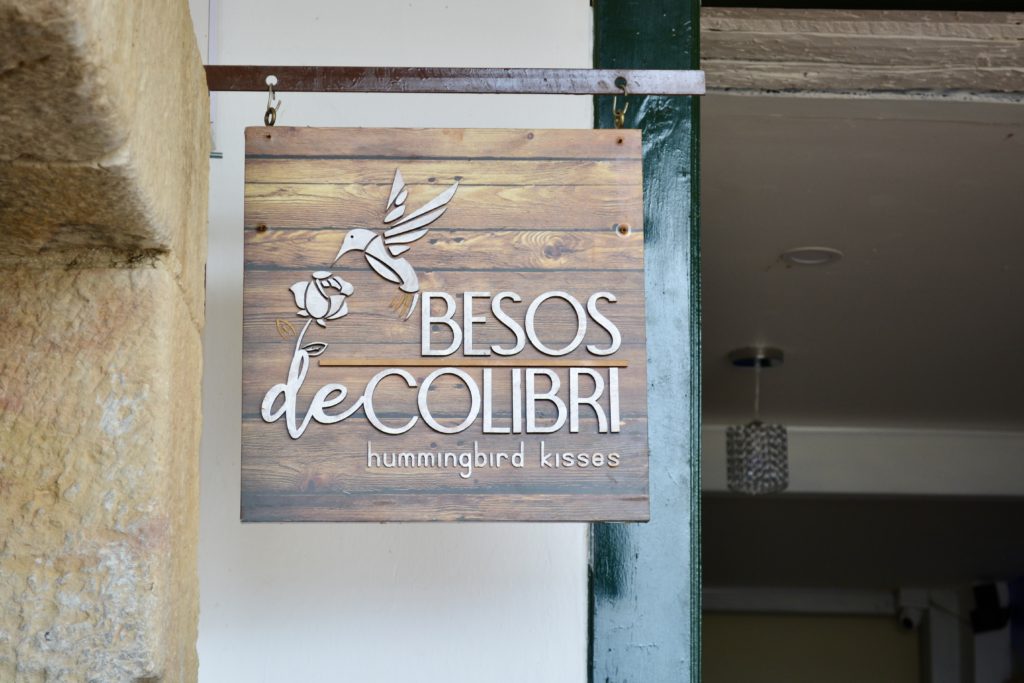
Moving further North we headed to Barichara, this was a complicated and long journey involving three changes of busses. First we caught the regular collectivo to the large town of Tunja, which looks a tidy and relatively prosperous place, and then on an intercity bus to the outdoors capital of San Gill. From there another collectivo took us to Barichara.
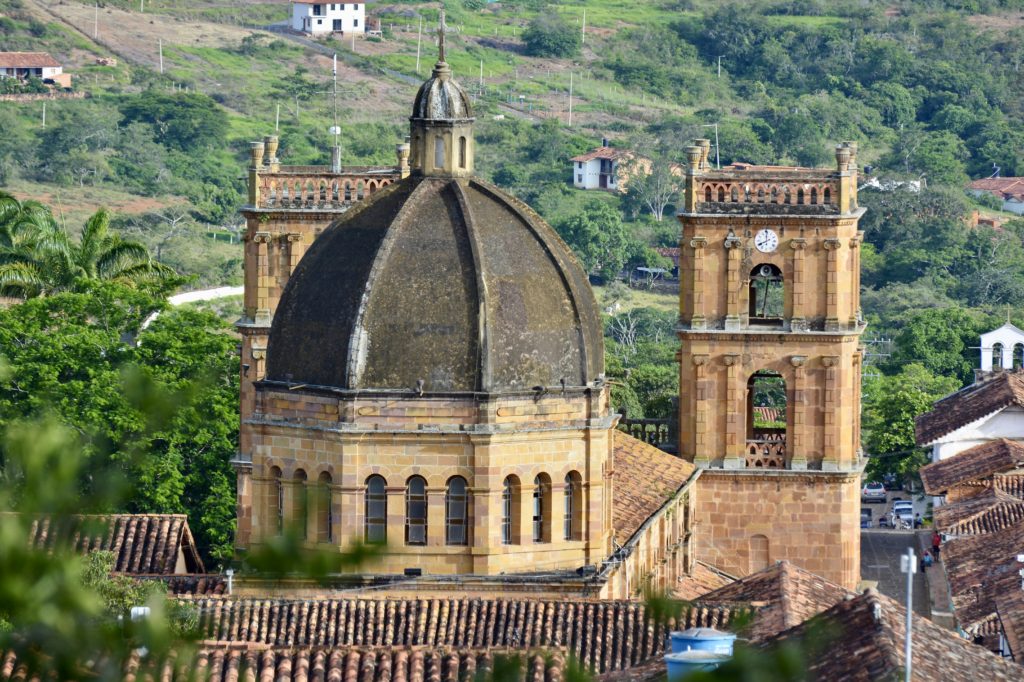
Barichara is another well preserved colonial town, with integrated and complimentary architecture throughout. In Colombia, Barichara is often famous for being used as a film set for the many telenovelas etc. Our hotel, the Casa Barichara Boutique, was located up the hill on the edge of town with beautiful views over the town and surrounding countryside.
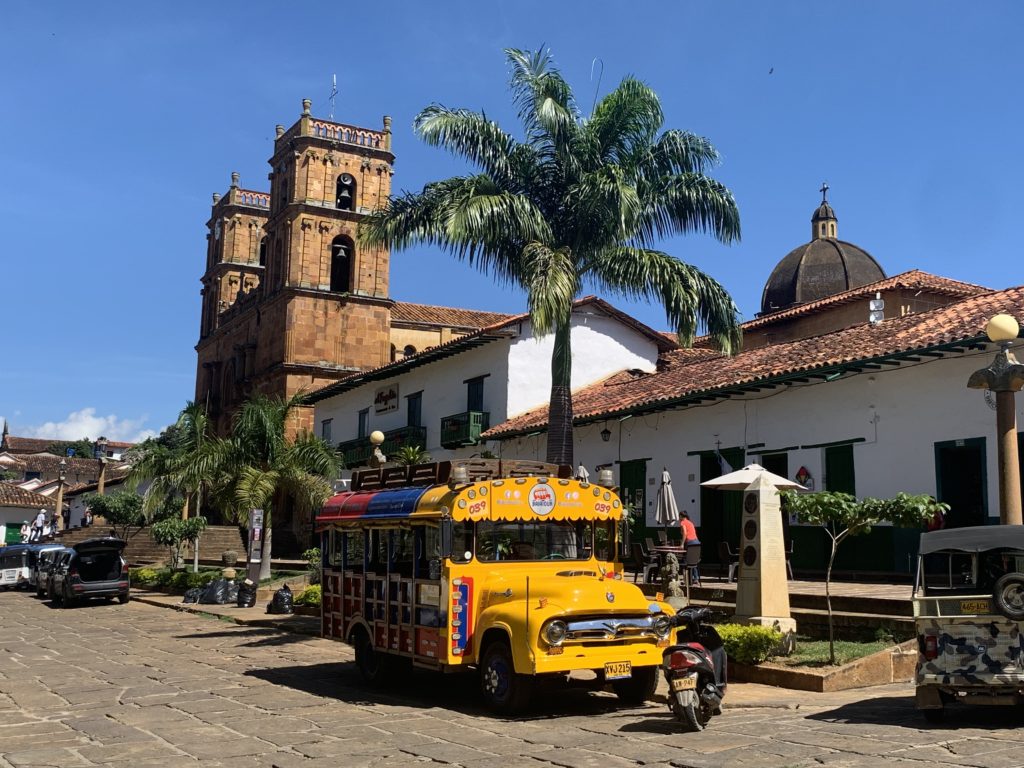
Dominating the small town is the Church of the Immaculate Conception on one side of the main square. The Main Square is also well preserved with all the buildings complementing each other architecturally in a reddish stone. The Square is where the locals gather and can get noisy in the evenings, but things quieten down later.
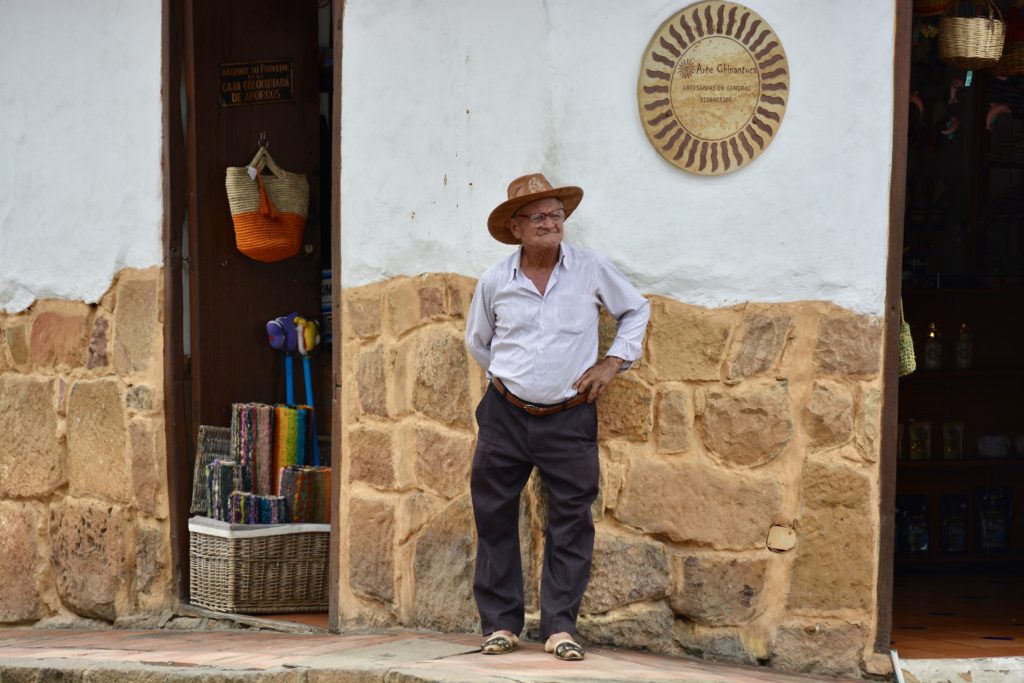
Barichara is too far from Bogotá to attract day-trippers, and attracts a more upmarket visitor from Bogotá than Villa de Leyva given the distance to travel. There are a handful of small museums, but the main reason to visit Barichara is to simple sit back and absorb the atmosphere in one of the most beautiful preserved towns in Colombia.
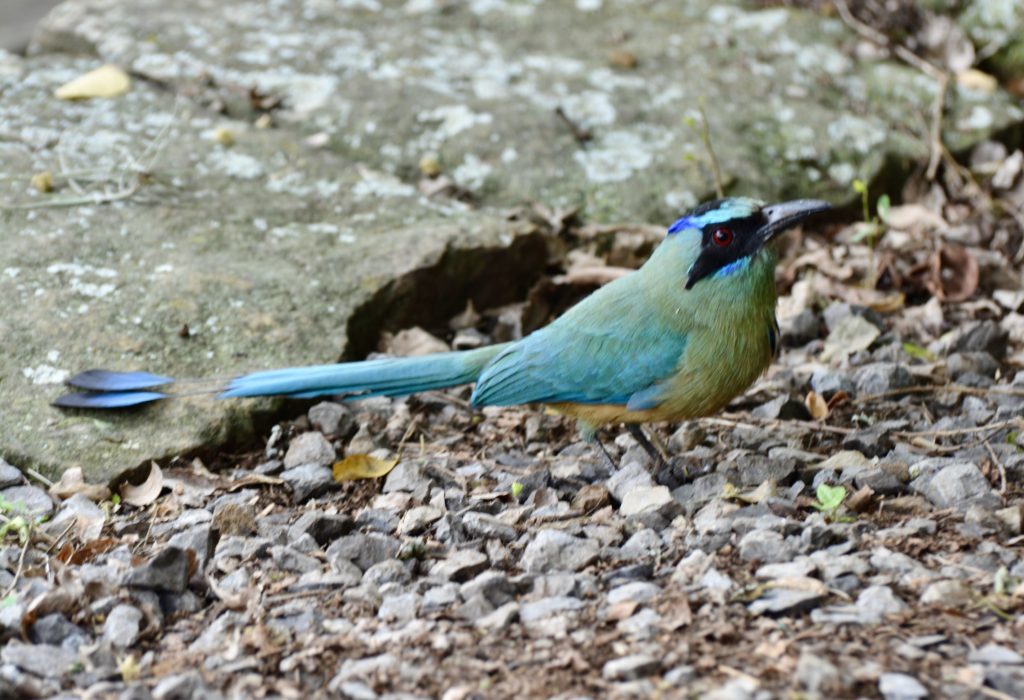
From Barichara, we returned to San Gill from where we caught the intercity bus to the large regional town of Burcaramanga. Our journey was significantly delayed by an accident, but once in Bucaramanga, we were able to relax in a plant large city. What Bucaramanga lacks for principal sites, it makes up for atmosphere with numerous universities and an economically active city. The old centre, like many towns, has been partly left behind, but is surrounded by numerous high rises, both offices and residential, many shops, restaurants and parks, one of which has a Botero.
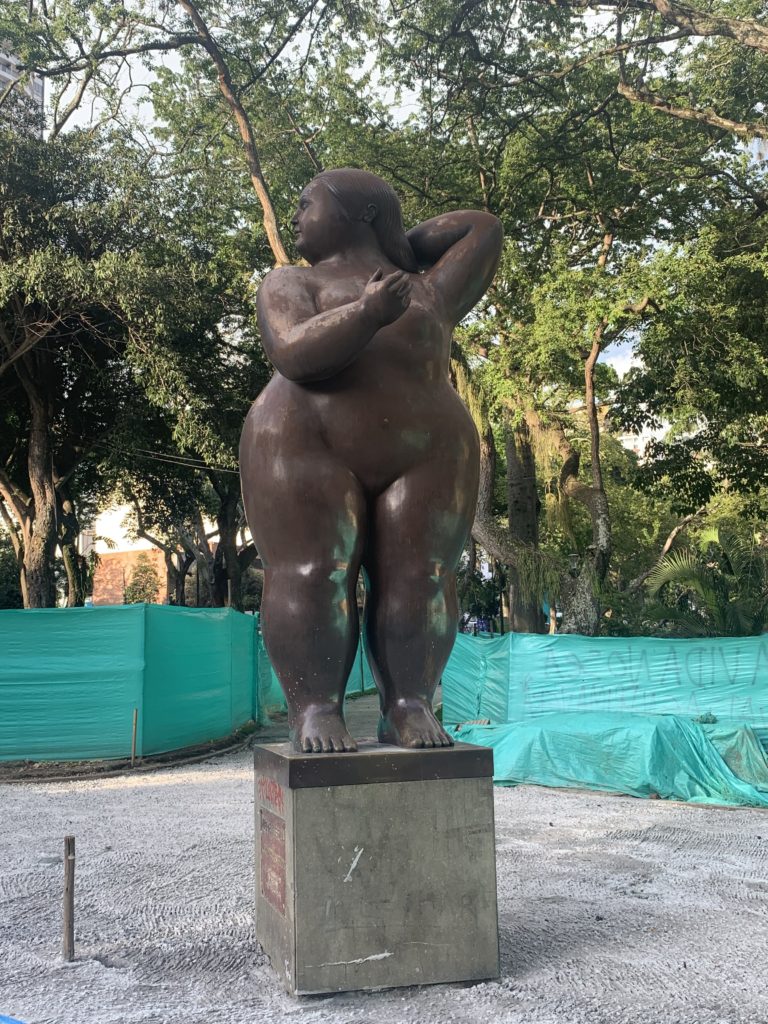
Dates visited 29th April to 4th May 2022
